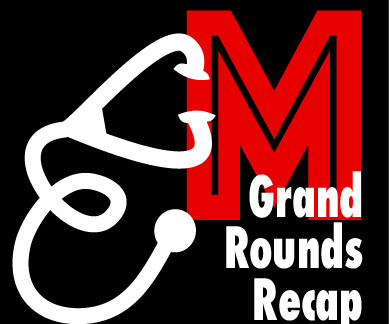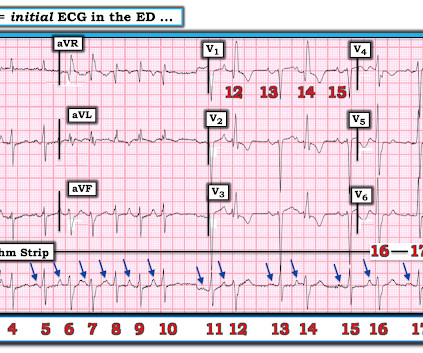EM@3AM: Brainstem Strokes
EMDocs
MAY 11, 2024
Answer : Brainstem stroke specifically in the pons resulting in locked in syndrome. CT head without contrast 1 is performed and reveals the following: Question: What is the diagnosis?

EMDocs
MAY 11, 2024
Answer : Brainstem stroke specifically in the pons resulting in locked in syndrome. CT head without contrast 1 is performed and reveals the following: Question: What is the diagnosis?

ACEP Now
OCTOBER 29, 2024
For example, experienced emergency physicians have great clinical gestalt and accuracy to predict sepsis in critically ill patients at just 15 minutes from patient arrival—more so than scoring tools like the qSOFA, MEWs, and even machine-learning trained artificial intelligence models.
This site is protected by reCAPTCHA and the Google Privacy Policy and Terms of Service apply.

Taming the SRU
JULY 31, 2024
Barometric pressure, humidity, and temperature changes may influence stroke and fall incidence (especially in elderly patients with cardiovascular risk factors). Nice people are not more likely to get cancer. Black clouds don’t exist (but I still sort of think they do).

Dr. Smith's ECG Blog
AUGUST 23, 2017
Here is his 12-lead ECG: The computer reads supraventricular tachycardia. Same stroke precautions as atrial fib A 40-something presented with palpitations and had a regular pulse at 170. What is it? It is atrial flutter with 2:1 conduction. It is not PSVT and not sinus. There are clear flutter waves in lead II across the bottom.

EB Medicine
JANUARY 10, 2020
Show More v Please click here and take our listener survey Part 1: Definitions Myocardial Infarction: elevated cardiac biomarkers (aka troponin) with clinical evidence of acute myocardial ischemia (aka signs and symptoms, ECG changes, abnormal imaging, or coronary thrombosis at cath or autopsy). Diagnostics Telemetry ECG.

Dr. Smith's ECG Blog
JANUARY 5, 2020
Here is the ECG: What do you think? A study of 2298 ECGs from 1085 patients which had a computerized interpretation of AF found that in 442 (19%) of these ECGs, from 382 patients (35%), the interpretation was incorrect, and that, in 92 of these 382 patients, the physician had failed to correct it. Among, 2447 ECGs, Mant et al.

Taming the SRU
APRIL 13, 2023
stent, percutaneous nephrostomy) by urology or IR Hypokalemia evaluate for EKG changes assess for underlying cause and factors that may influence ability to replete (i.e. Vaishnav Hyperthermia: abnormally high body temperature due to thermoregulatory failure Severe hyperthermia: temp greater than 40.5C
Let's personalize your content